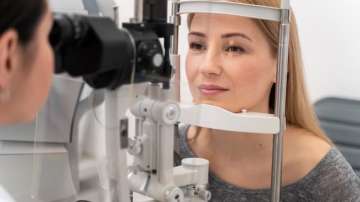Diabetic Mellitus incidence is increasing in today’s world with our lifestyle changes and so are its effects on the eye. Many patients seeking cataract surgery often have co-existing diabetic eye disease. This does put additional stress on the eye and its share of complications, however with proper care and precautions it is still possible to deliver excellent post-operative results following cataract surgery in diabetic patients.
The points to keep in mind when planning cataract surgery in diabetic patients is – careful preoperative planning, attention to detail at the time of surgery, close post-operative supervision, and monitoring of diabetes minutely.
Here are some key points to remember while planning cataract surgery in diabetic patients.
- Early recognition and treatment of diabetic retinopathy / maculopathy before cataract surgery will influence the final visual outcome.
- Early cataract surgery will have more favourable visual outcomes in diabetes as the retinal changes especially Diabetic macular oedema can be recognized and treated preoperatively. In Advanced cataracts it would not be possible to identify and adequately treat DME. Teamwork with retinal colleague is the best approach.
- It is important to ensure good glycaemic control preoperatively.
- Make sure there is no ocular infections as diabetes predisposes to infections easily.
- Ancillary diagnostic tests such as OCT, Fluorescein Angiography, USG B scan are a must to help detect any diabetic complications.
- It is best to treat pre-existing Proliferative diabetic retinopathy preoperatively as these are the eyes most likely to progress and develop complications.
- Make sure the visual dysfunction corresponds to degree of cataract, one must look for other causes of visual loss too especially diabetic retinopathy.
- Intra operatively Surgeon should make some changes in cataract surgery like choice of IOL being implanted as these patients are more likely to develop capsular opacification.
- Multifocal lenses should be avoided in diabetic patients especially those with diabetic retinopathy.
- Surgeon should try and make intra- operative steps less traumatic. Efficient surgical techniques will ensure optimal results in diabetic patients.
- Post operative judicious use of topical steroids, anti inflammatory drops help to prevent diabetic macular edema.
- Good glycaemic control in post operative period is essential to aid with healing.
So even though cataract in diabetic patients comes with challenges, following good preoperative and post operative care and good surgical technique one can hope for excellent visual recovery.
(This article is attributed to Dr Neeraj Sanduja, MBBS, MS, Ophthalmology)
(Disclaimer: The opinions expressed in this article are those of the author. They do not reflect the views of India TV)

